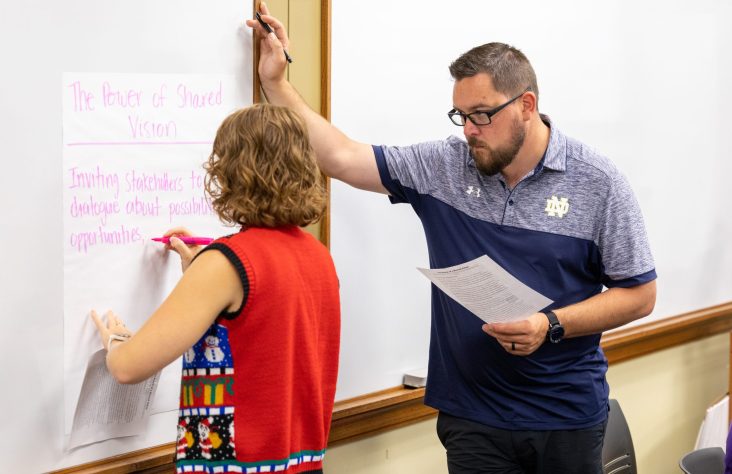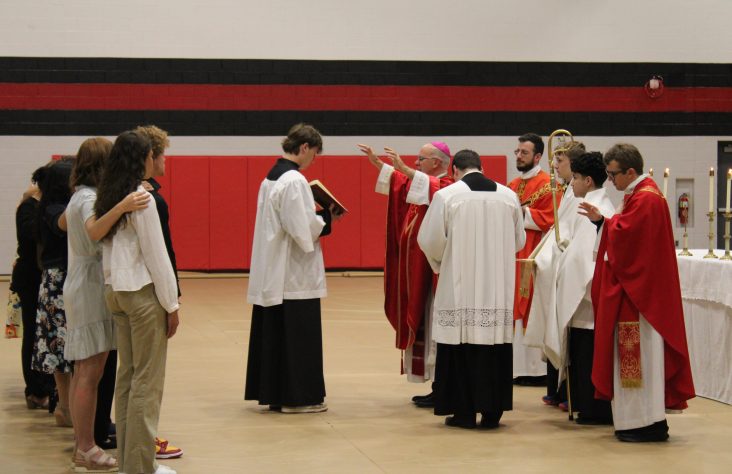September 9, 2009 // Local
Be still and know that I am God
By Linda Furge
St. Francis De Sales:
Living a devout life in an un-devout world
Most of us learned how to pray at a very early age. That is a good thing in that we have grown quite comfortable with prayer since it was incorporated into the very fabric of our lives when we were very young. But since we have been doing it for so long, we may also tend to take prayer and praying for granted sometimes.
As St. Francis de Sales tells us, we have not been created because God needs us. Rather we have been created … “with an intellect to know him, memory to be mindful of him, will to love him, imagination to picture to (ourselves) his benefits, eyes to see his wonderful works, tongue to praise him, and so on…” (First Part of the Introduction, 10).
In other words, we pray because our very nature as creatures demands and needs it.
As always, Jesus is our teacher and role model with prayer and its place in a devout life. Through the Gospels and reflections of great spiritual writers, we learn how to become one with Christ — even as “The Father and I are one.” — Jn 10:30. St. Francis tells us that, just as Jesus did, we should “practice mental prayer” by incorporating it into our daily routines, setting time and distractions aside in a quiet place — wherever we might find it.
The presence of God
While we can choose various forms of prayer, such as the rosary, formal prayers like the Our Father and Hail Mary or praying with Scripture, every form of prayer always begins, St. Francis says, by placing ourselves in God’s presence. By that we mean an intentional awareness that God is present to us “… in all things and all places.” (Second Part of the Introduction, 2).
And so often, just like praying, we may take the presence of God for granted. Along with our first prayers, we learned early on that God is everywhere and “lives” in heaven. We learned that, while God is powerful enough to create the whole universe, God is also very close to us, loves and listens to us, and protects us from all harm.
It seems hard to reconcile an all-powerful Being who is in heaven (transcendent) and “has the whole world in his hands” with someone who loves you and knows you intimately (immanent) and who even provides for the lowly birds in the sky and the lilies in the fields. While God’s nature will always be a mystery to us, perhaps one way to understand how God’s presence can be both transcendent and immanent at the same time is to make a very human analogy to the air we breathe. Air can be considered both transcendent (“out there”) and immanent (within our bodies as oxygen). We — and all God’s creatures — are solely dependent on air for existence; it is invisible but real; it surrounds and sustains each and every one of us.
St. Francis de Sales says, “Just as wherever birds fly they always encounter the air, so also wherever we go or wherever we are we find God present.” (Second Part of the Introduction, 2). In the same way that we depend on air for survival, we — and the entire universe — are solely dependent on God for our very existence; God is invisible but we know he is real through the person of Jesus Christ; and God’s love surrounds, sustains and protects each one of us every moment of every day.
Awareness of God’s presence
God’s immense and overflowing love created the universe and makes him transcendent from us. And it is that very same enveloping and sustaining love (like the air we breathe) that also allows us to trust that he is very close to us, intimately knowing our innermost being and personally caring about our smallest needs and concerns. In fact, when we consume the Eucharist at Mass, God enters into our bodies and literally becomes a part of us. When we realize and understand the very personal nature of God’s love for us, that, as written in Acts, “in him we live and move and have our being,” we feel in our hearts “… great reverence toward God who is so intimately present in it.” (Second Part of the Introduction, 2).
Yet another way to become aware of the presence of God is through the realization that we are incorporated into Christ’s body, that wherever we are, there is Christ whom we recognize as present in the persons with whom we interact each day.
And, finally, one last way to be aware of God in our lives is to remember his promise that he is with us to the ends of the earth and to the end of time.
Our awareness of the presence of God in our lives is important to prayer in a devout life. In “The Committed Life,” William Meninger concludes, “So you see, my friend, there are many ways in which you can present yourself to the presence of God as you begin your prayer. Indeed, this practice, if it appeals to you, can be your very prayer itself. Just be still and in an awareness of God’s presence. At times nothing more is necessary.”
The best news. Delivered to your inbox.
Subscribe to our mailing list today.





